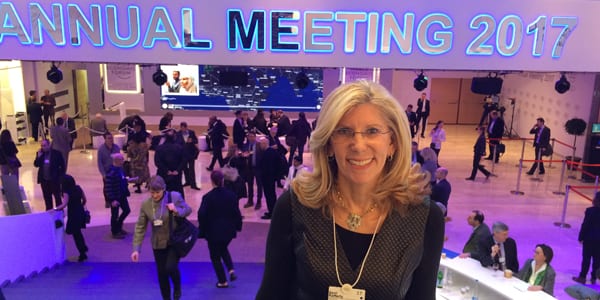 The Annual Meeting of the World Economic Forum has begun and this year there is an extraordinarily timely theme: responsive and responsible leadership.
The Annual Meeting of the World Economic Forum has begun and this year there is an extraordinarily timely theme: responsive and responsible leadership.
Amid the growing discontent of the world’s citizens with corporate and government leaders, we are on the verge of a transformation with respect to who leaders are and how they lead. For leaders, there is also the question of how to be effective while ensuring they are heard.
With the emerging Fourth Industrial Revolution of converging technologies as its backdrop, the Davos discussion will enable leaders from all industries and cultures to redefine the new goals, tactics and norms necessary to purposefully lead increasingly skeptical stakeholders.
But without effective and authentic communication that leadership agenda will be met with continued distrust, causing an uphill battle from the start for leaders to fight.
Leaders Lack Liability and Trust:
Of course, smart leaders have always taken advantage of communication and powerful techniques to further their agendas. Julius Caesar was a tremendous orator, delivering rabble-rousing speeches – sometimes right on the battlefield – that spurred his soldiers into battle. Winston Churchill, plagued by a speech impediment, practised incessantly and focused on short, declarative sentences. His radio broadcasts bolstered the morale of Britain during the tumult of World War II.
Today’s leaders have a wealth of options to get the message across – from speeches, blog posts and Facebook Live, to virtual town halls and Twitter.
So why are our leaders so uniformly mistrusted or disliked? As we discovered in the 2016 Ketchum Leadership Communication Monitor, 63% of the people surveyed across five continents believe politicians have fallen short of expectations. In addition, only 23% said that leaders overall are effective.
I believe one key component of the public’s disillusionment with leadership is the ever-widening “say-do” gap – the distance between what leaders actually do and the expectations they set. This skepticism is only becoming more apparent – only 31% believe leaders overall are communicating effectively, down 6% from our first study in 2012.
With a multitude of tools and channels at their disposal, many leaders are seemingly disconnected from their audiences.
Using our survey results as a guide, here are a few things they can do about it:
Be more human and approachable.
Among the top seven traits people want in a leader are several specific to communications: speaking in everyday language (86%), apologizing for mistakes (82%), speaking his/her mind (66%) and being of few words (66%). Communicating regularly, and in a plain language, goes a long way toward capturing the attention – and respect – of stakeholders.
Be a woman.
Just kidding here (well, sort of), but female leaders get high marks from survey respondents, with 52% believing women are better at leading by example, and 59% saying they are better than men at communicating in an open and transparent way. The lesson here isn’t necessarily about gender: it’s about the positive impact of communicating openly, honestly and consistently, in good times and bad.
Be more humble.
Even the world’s most accomplished and admired leaders have imperfections. Those that admit their faults (and strive to correct them), convey passion about important topics, welcome the perspectives of others, and straightforwardly articulate their views, will instill confidence, command respect and establish a strong rapport.
Communicate – early and often.
Not all leaders are Julius Caesar or Winston Churchill – the key is to find which unique, yet effective, communication tools, strategies and channels work best for each individual.
The Davos discussions are unlikely to unveil a simple panacea for our crisis of confidence in leadership. Only leaders themselves can bridge that gap by governing with moral conviction, responsible actions and timely communications that earn the admiration – and support – of a populace hungry for authenticity.
A version of this article can be found on the World Economic Forum’s Agenda Blog.
